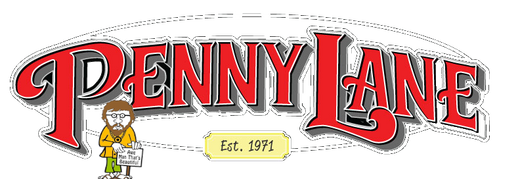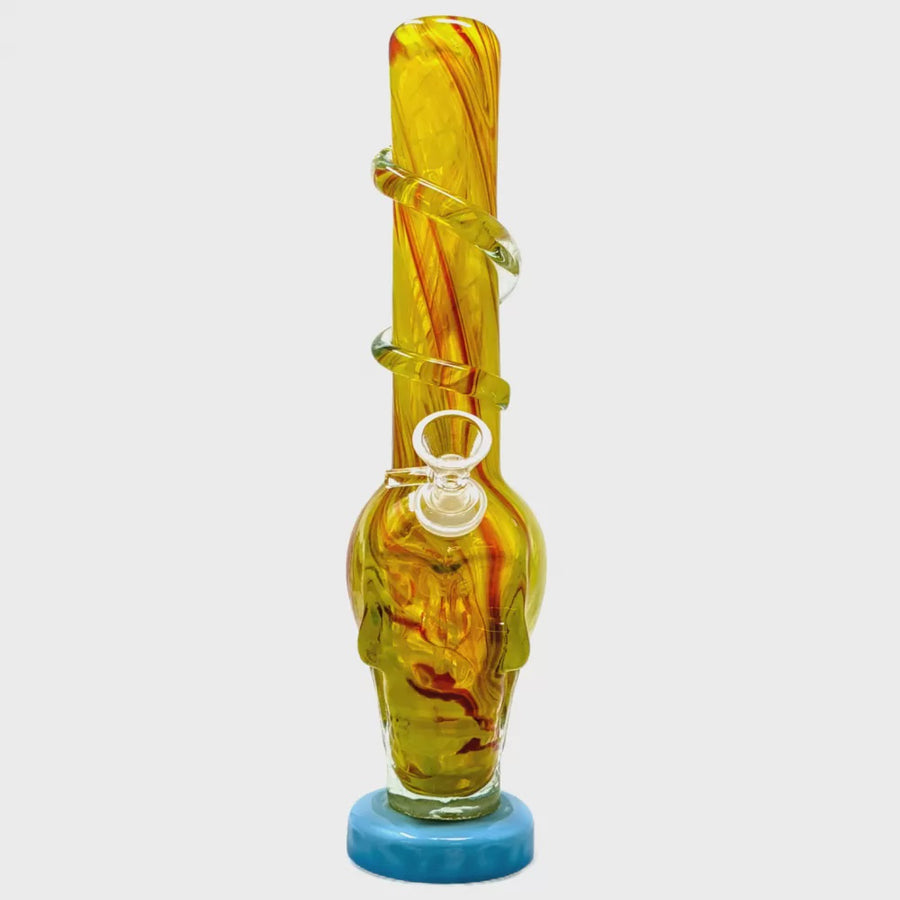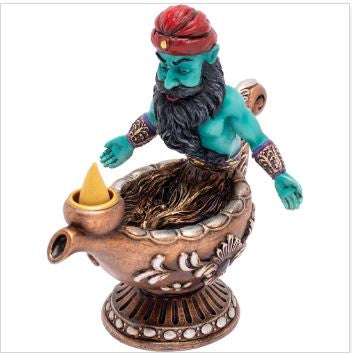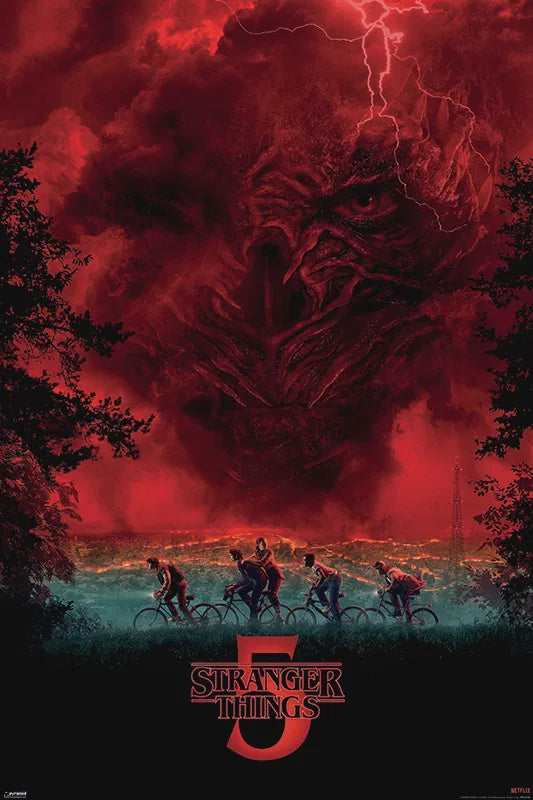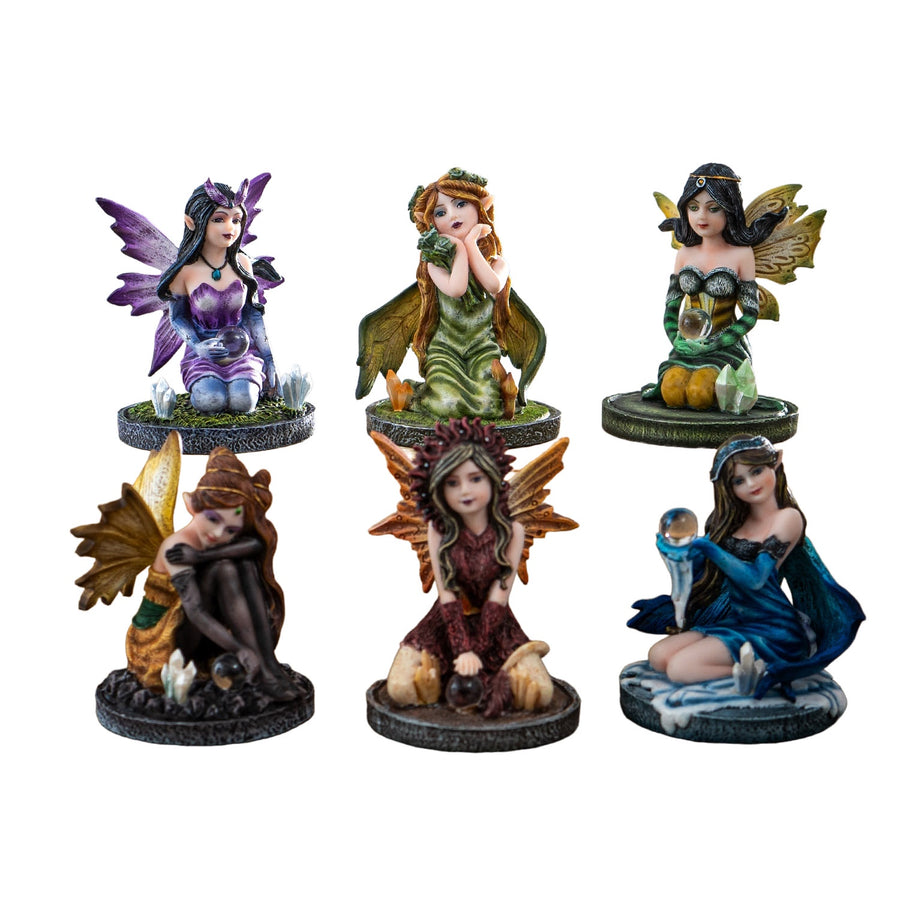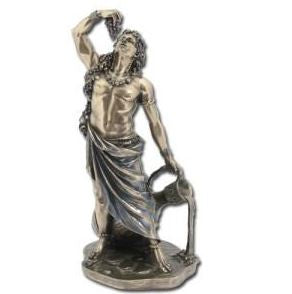
Dionysus Greek God Bronze Statue 7544
In ancient Greek religion and myth, Dionysus, or Dionysos is the god of wine-making, orchards and fruit, vegetation, fertility, festivity, insanity, ritual madness, religious ecstasy, and theatre. He was also known as Bacchus, or Bacchos by the Greeks (a name later adopted by the Romans) for a frenzy he is said to induce called baccheia. As Dionysus Eleutherius ("the liberator"), his wine, music, and ecstatic dance free his followers from self-conscious fear and care, and subvert the oppressive restraints of the powerful. His thyrsus, a fennel-stem sceptre, sometimes wound with ivy and dripping with honey, is both a beneficent wand and a weapon used to destroy those who oppose his cult and the freedoms he represents. Those who partake of his mysteries are believed to become possessed and empowered by the god himself.
His origins are uncertain, and his cults took many forms; some are described by ancient sources as Thracian, others as Greek. In Orphism, he was variously a son of Zeus and Persephone; a chthonic or underworld aspect of Zeus; or the twice-born son of Zeus and the mortal Semele. The Eleusinian Mysteries identify him with Iacchus, the son or husband of Demeter. Most accounts say he was born in Thrace, traveled abroad, and arrived in Greece as a foreigner. His attribute of "foreignness" as an arriving outsider-god may be inherent and essential to his cults, as he is a god of epiphany, sometimes called "the god that comes".
Wine was a religious focus in the cult of Dionysus and was his earthly incarnation. Wine could ease suffering, bring joy, and inspire divine madness. Festivals of Dionysus included the performance of sacred dramas enacting his myths, the initial driving force behind the development of theatre in Western culture. The cult of Dionysus is also a "cult of the souls"; his maenads feed the dead through blood-offerings, and he acts as a divine communicant between the living and the dead. He is sometimes categorised as a dying-and-rising god.
Romans identified Bacchus with their own Liber Pater, the "Free Father" of the Liberalia festival, patron of viniculture, wine and male fertility, and guardian of the traditions, rituals and freedoms attached to coming of age and citizenship, but the Roman state treated independent, popular festivals of Bacchus (Bacchanalia) as subversive, partly because their free mixing of classes and genders transgressed traditional social and moral constraints. Celebration of the Bacchanalia was made a capital offence, except in the toned-down forms and greatly diminished congregations approved and supervised by the State. Festivals of Bacchus were merged with those of Liber and Dionysus.
APPROX DIMS: 4.75" X 4.13" X 10.5"
MATERIAL: COLD CAST BRONZE
Brand: DEREK W FROST
- Hippie Approved
- Secure payments
- Shipping or Free In-Store Pickup Available
- Low stock - 1 item left
- Backordered, shipping soon
